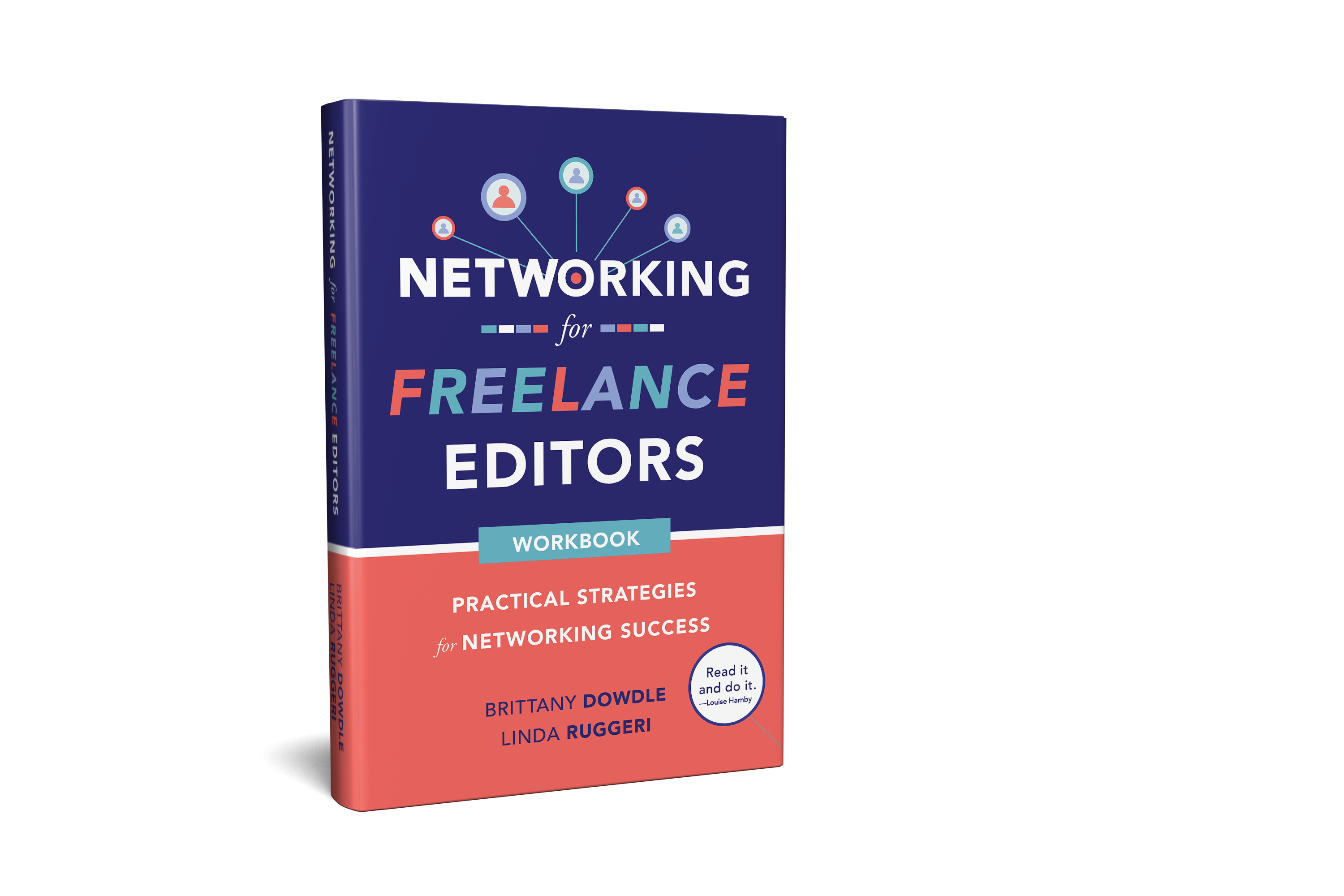
For many of us out here in the freelance world, networking can feel like a chore. But Networking for Freelance Editors: Practical Strategies for Networking Success taught me two key things that turned a chore into a worthwhile challenge. For starters, activities I’m already doing willingly and regularly can become effective networking tactics with the right mindset. As authors Brittany Dowdle and Linda Ruggeri wrote, “part of being a successful freelancer is finding opportunities in the unlikeliest of places.”
And second, the first step to successful networking is really getting to know my business. That’s right, looking inward first, not outward, to build a successful network. That notion helped minimize how intimidated I felt about having to actually get out there and network.
Making a contribution
Part 1: Reimagining Networking is all about taking on a confident, optimistic mindset when you think about networking — thinking in terms of how you can contribute, rather than how you’ll make connections. In doing so, you’ll learn to contextualize your freelance work as a single yet symbiotic element of the publishing industry. By building your network, you’ll not only become a contributing member of a robust group of industry partners, but you’ll also begin to appreciate the value in honing your craft into a specialization.
Tools and tactics
What works especially well about Dowdle and Ruggeri’s approach is how they’ve broken down the concept of networking. The straightforward exercises in Part 2: Networking Tactics are simple enough to be manageable and thoughtful enough to be stimulating for those of us who are not exactly social butterflies by nature. While the book is both instructional and inspiring, the worksheets are crucial in helping to assess your current career position, at whatever stage it may be. These self-assessments can help you identify specific goals that will allow you to advance and scale your business, or simply achieve your next milestone. The workbook truly is written for editors anywhere along the experience spectrum; it offers a boost of confidence and a friendly reminder that you’re accountable for investing in your own career.
Defining specific goals
The worksheets gave me the push I needed. As I made my way through each exercise, I uncovered specific tasks to accomplish before I could expect to see any real advancement toward my long-term career goals. For instance, one of my goals is to build a freelance business in book editing. What Networking for Freelance Editors first made me realize is just how vague this goal is, and that without narrowing it down, I’d never get there. The book’s prompts are so specific that there’s no side-stepping. I had no choice but to figure out what I planned to do this week, and next week, and the week after that, to get myself to that next stage in my career. So, yes, I want to be a freelance book editor, but what am I doing right now that’s helping me get there?
From generally good advice (like joining editing directories and professional groups), to providing specific resources for self-assessment and network planning (like quarterly check-ins and networking mind maps), this book is the full package to jump-starting the next step in any editing career.
—
Previous post from Jasmine Peteran: The New Networking Reality for Students
The Editors’ Weekly is the official blog of Editors Canada. Contact us.
Discover more from The Editors' Weekly
Subscribe to get the latest posts to your email.
